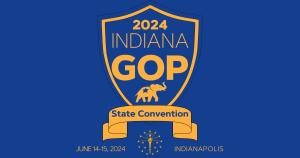Indianapolis, Ind. -- Attorney General Greg Zoeller today announced Indiana's involvement in a multi-state settlement with T-Mobile USA, Inc., in which the company has agreed to refund customers for allegedly placing unauthorized charges on customers' cell phone bills, a practice known as "mobile cramming." An estimated 115,000 Hoosiers may be eligible for refunds that could exceed $70 million nationally.
Zoeller is joined in the settlement by the attorneys general of the other 49 states and the District of Columbia, the Federal Trade Commission, and the Federal Communications Commission. The attorneys general and federal regulators allege that cramming occurred when T-Mobile placed charges from third-parties on consumers' mobile telephone bills without their knowledge or consent.
Consumers who have been "crammed" often complain about charges, typically $9.99 per month, for "premium" text message subscription services (also known as "PSMS" subscriptions) such as horoscopes, trivia and sports scores, that the consumers have never heard of or requested.
T-Mobile is the second mobile telephone provider to enter into a nationwide settlement to resolve allegations regarding cramming. Zoeller announced a similar, $105 million settlement with AT&T in October of this year. T-Mobile and AT&T were among the four major mobile carriers – in addition to Verizon and Sprint – that announced they would cease billing customers for commercial PSMS in the fall of 2013.
"Adding hidden charges to peoples' cell phone bills without their knowledge or consent is deceptive and unfair, and unfortunately it was a rampant practice among phone carriers," Zoeller said. "The attorneys general have been working with the major phone carriers to make sure this type of overcharging scheme does not occur again and to refund customers who were affected."
Under the terms of the settlements, T-Mobile must provide each victim of cramming who files a claim under its Premium SMS Refund Program an opportunity for a full refund. The settlement terms require that T-Mobile pay at least $90 million; of this sum, at least $67.5 million must be paid to consumers. T-Mobile will also pay $18 million to the states and $4.5 million to the Federal Communications Commission.
Consumers can submit claims to T-Mobile by visiting www.t-mobilerefund.com. On that website, consumers can submit a claim, find information about refund eligibility and how to obtain a refund, and can request a free account summary that details PSMS purchases on their accounts. Consumers who have additional questions can call 855-382-6403.
The settlement requires T-Mobile to stay out of the commercial PSMS business – the platform to which law enforcement agencies attribute the lion's share of the mobile cramming problem. T-Mobile must also take a number of steps designed to ensure that it only bills consumers for third-party charges that have been authorized, including the following:
--T-Mobile must obtain consumers' express consent before billing consumers for third-party charges, and must ensure that consumers are only charged for services if the consumer has been informed of all material terms and conditions of their payment;
--T-Mobile must give consumers an opportunity to obtain a full refund or credit when they are billed for unauthorized third-party charges;
--T-Mobile must inform its customers when they sign up for services that their mobile phone can be used to pay for third-party charges, and must inform consumers of how those third-party charges can be blocked if the consumer doesn't want to use their phone as a payment method for third-party products; and
--T-Mobile must present third-party charges in a dedicated section of consumers' mobile phone bills, must clearly distinguish them from T-Mobile charges, and must include in that same section information about the consumers' ability to block third-party charges.
Indiana received $292,241.80 for its participation in the settlement to be deposited in the Consumer Protection Fund for use in future consumer protection enforcement, education, litigation or restitution.
Zoeller thanked Deputy Attorneys General Tom Irons and Eliza Bradley for their work on this case.




